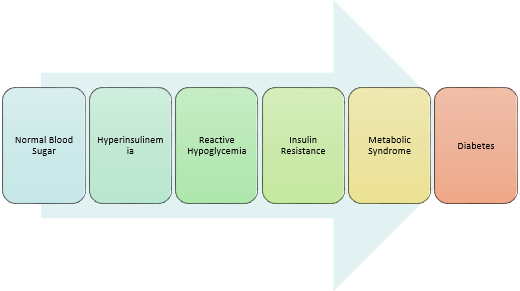Friends on my personal Facebook page have seen me posting “giggles” posts several times a day. I post funny videos, corny jokes, whatever makes me laugh. Why do something so “pointless?” All it does is clog up people’s news feed with “useless” stuff.
Well, I started it after my own Facebook feed grew so very negative. There were posts about police shootings, corrupt political candidates, race wars, religious wars, natural disasters and more. It seemed that the world had gone mad and all the joy had been sucked out of life. I found my stress level growing worse and worse and my world growing increasingly dark.
So I decided to do something about it.
I started reposting things that made me laugh.
Why do this? Because I understand how damaging stress is on the body and I understand the power of laughter. I wanted to help brighten my friends’ day and lower their stress level even if it was just for a moment.
Why Is Laughter So Important?
“A cheerful heart does good like medicine,
but a broken spirit makes one sick.”
Proverbs 17:22 The Living Bible
Laughter has several healing qualities. For example, research has shown laughter can relieve stress by:
- Increasing oxygen intake which stimulates organs and increases endorphin production
- Activating the parasympathetic nervous system (the calming side of the nervous system)
- Stimulating circulation and aids muscle relaxation
- Boosting the immune system
- Relieving pain
- Improving mood[i]
With all laughter has to offer, why would you NOT want to laugh?
The Consequences Of Chronic Stress
 Why should we be concerned about stress? What’s so terrible about it? Sure it can cause anxiety sometimes (like if you have a terrible job) or a poor night’s sleep, but is it really so bad for your health?
Why should we be concerned about stress? What’s so terrible about it? Sure it can cause anxiety sometimes (like if you have a terrible job) or a poor night’s sleep, but is it really so bad for your health?
In a word, yes!
Chronic stress negatively impacts every single area of the body. Just a few examples include increased incidents of:
- Cardiovascular disease
- Anxiety
- Frequent colds
- Memory loss
- Hypertension
- Sexual dysfunction
- Insomnia
- Fatigue
- Depression
- Infertility
- Irregular menstrual cycles
- Difficulty concentrating
- Digestive problems[ii]
Let’s take a look at how the stress response relates to an all-too-common problem, blood sugar management.
The Candy Bar Effect of Stress
You’ve heard of the stress hormone called cortisol. You probably relate it to excess belly fat since people with chronically elevated cortisol levels often have excess fat around their middle. Cortisol is released in response to stress whether emotional stress (a bad job or poor relationship), physical stress (illness or injury), or mental stress (worry or reliving past stressful experiences).
 One of cortisol’s jobs is to stimulate the release of stored sugar, called glycogen, providing muscles with the fuel they need to escape the threat or turn and fight it. Often referred to as the “fight or flight” response, this mechanism was very handy back in cave man days when we had to escape sabretooth tigers.
One of cortisol’s jobs is to stimulate the release of stored sugar, called glycogen, providing muscles with the fuel they need to escape the threat or turn and fight it. Often referred to as the “fight or flight” response, this mechanism was very handy back in cave man days when we had to escape sabretooth tigers.
Trouble is, in our modern sedentary society we don’t go out and fight that tiger. We sit at our desk all keyed up and angry over an unpleasant interaction with our boss. Cortisol has released a shot of sugar into our blood stream, but we don’t use it up by exercising. As a result, our blood sugar rises.
That’s how stress can have the same effect on the body
as eating a candy bar, but without the joy of the treat.
This is one reason why diabetics can have trouble controlling their blood sugar. There’s a stress in their life that is triggering cortisol which raises their blood sugar.
But you don’t have to be diabetic to have blood sugar trouble.
The Blood Sugar Continuum
There’s a whole continuum of blood sugar dysregulation that ends with Type 2 Diabetes. Symptoms occur anywhere along that spectrum. The scary part is 46% of the American population is either diabetic or pre-diabetic. Many people don’t know they’re pre-diabetic!
Signs of blood sugar issues include:
- craving sweets
- afternoon sleepiness
- fatigue after meals
- hungry soon after eating (even after eating a big meal)
- lightheaded or moody if meals are missed
- blurred vision
- difficulty losing weight despite regular exercise
I often refer to blood sugar symptoms by the three biggest culprits: Fog, Flab and Fatigue.
- Brain Fog: the inability to think straight, concentrate, or remember things
- Belly Fat: or extra flab, especially around the middle
- Fatigue: despite a good night’s sleep
These blood sugar disorders can result in some pretty unpleasant consequences:
- Decreased thyroid production (low metabolism, weight gain, hair loss)
- Increased risk of cancer
- High blood pressure (increased cardiac risk)
- Systemic inflammation (This is a biggie! More on that in another post)
- Increased risk of Alzheimer’s (researchers are beginning to call Alzheimer’s Type 3 Diabetes)
“We conclude that the term “type 3 diabetes” accurately reflects the fact that AD [Alzheimer’s disease] represents a form of diabetes that selectively involves the brain and has molecular and biochemical features that overlap with both type 1 diabetes mellitus and T2DM [type 2 diabetes melitus].”[iii]
| Are you at risk for blood sugar problems? Take the Quiz and find out! |
I hope you can see that managing both stress and blood sugar can go a long way toward maintaining your health. I’ve only just touched on them in this post. Stress and blood sugar are each easily whole volumes on their own and I’ll be discussing them in greater detail in upcoming posts.
For now, keep your blood sugar under control by managing stress whether the source be physical, mental or emotional.
Solutions
Stress Management:
Mental/emotional stress: explore Splankna therapy, Heart Math, prayer and meditation, and time out in nature
Physical stress: consider if you may be under or OVER exercising, possible hidden infections (viral, bacterial, parasitic, SIBO or other gut dysbiosis), nutrient deficiencies, poor gut function, poor diet.
These hidden physical stresses can be very tricky to track down. A functional health practitioner can help. you find them more quickly
Diet:
Developing a personalized menu that keeps your blood sugar at optimal levels is vitally important to blood sugar management! You can do this yourself by using a glucometer (blood sugar meter) to test your glucose and aim to keep it below 115 after meals. After a while you’ll have a collection of meals you know work for your body.
I cover this and much more in my blood sugar class, Total Energy Upgrade and also in private nutrition coaching sessions. Sign up for my newsletter and follow me on Facebook to be notified the next time I run the class.
References:
[i] http://www.mayoclinic.org/healthy-lifestyle/stress-management/in-depth/stress-relief/art-20044456
[ii] http://articles.mercola.com/sites/articles/archive/2015/12/17/stress-makes-you-sick.aspx
[iii] http://www.ncbi.nlm.nih.gov/pmc/articles/PMC2769828/





Leave a Reply